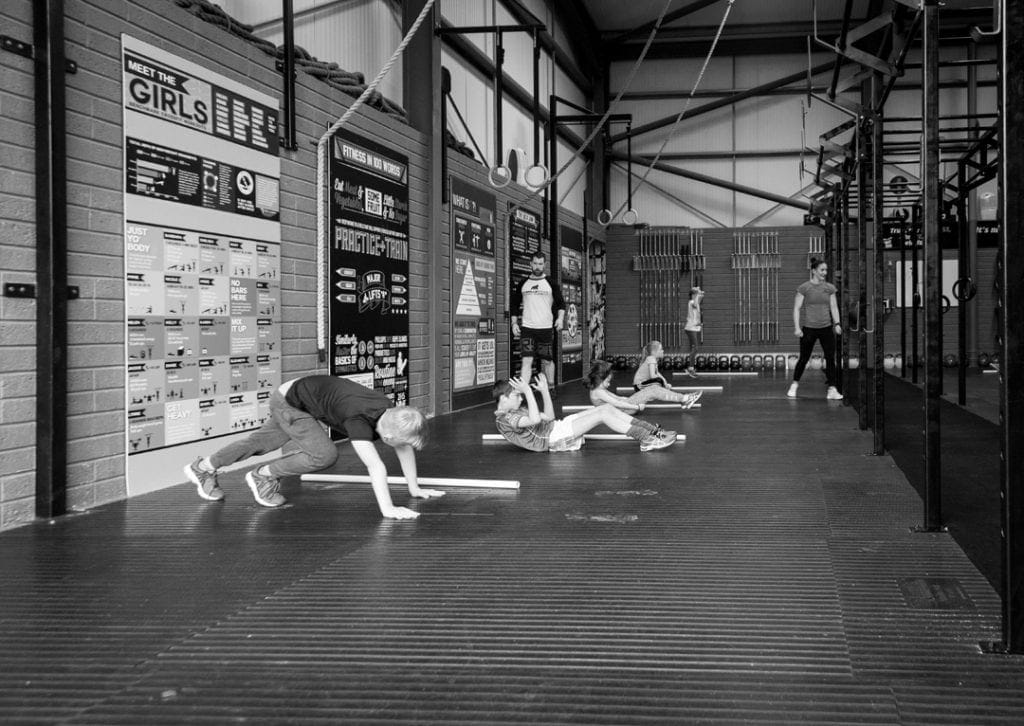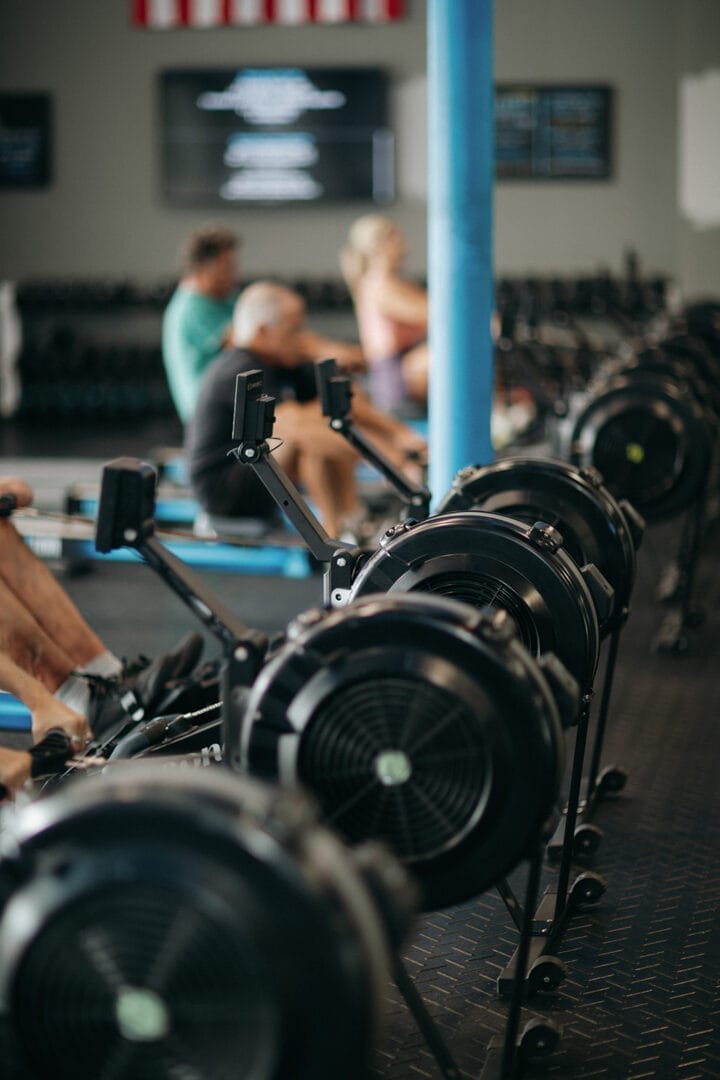Foundations Ages 6+

In the foundation stage, participants develop foundational movement skills and movement patterns in structured and unstructured environments for play. The focus is on providing fun, inclusive, multisport, and developmentally appropriate activity. These experiences will result in the child developing a wide range of movement skill along with the confidence and desire to continue to learn and play.
- Building movement capacity through structured games and free play, teaching life skills such as teamwork and communication skills also.
- Incorporating games which require little feedback and correction so all children can express themselves fully.
- The main focus here is built around structured fun through movement.
Fundamentals – Ages 8+

Once a wide range of foundational movement skills have been acquired, participants progress into the fundamental stage leading to incorporating basic exercises such as carrys (farmers carrys) , holds (planks/deadhang), push (push up) and pull (Pull up) exercises etc . Games and activities are inclusive, fun, and include a higher skill base this stage while introducing some competition. At the end of the Learn to Train stage, participants grow (or progress) towards excellence in the Train to Train stage.
- Activities should include significant time for repetition allowing children to safely test their own limits, and improve their abilities through experience. Activities should be helping children build confidence and competence as they engage in physical activity.
- Emphasise the overall development of the child’s physical capacities, fundamental movement skills, and the ABCs of athleticism: agility, balance, coordination and speed.
- A mixture of structured and unstructured play with the focus on fun and enjoyment.
Learn to Train – Ages 10-13

Once a wide range of fundamental movement skills have been acquired and a strong base of physical competency has been built up over the last number of years participants progress into the Learn to Train stage leading to incorporating some loaded exercises such as squats, deadlifts, kettlebells swings, plyometrics and higher skill gymnastics . Games and activities are inclusive, fun, and include a higher skill base at this stage while introducing some element competition. At the end of the Learn to Train stage, participants grow (or progress) towards excellence in the Train to Train stage or being Active for Life, either by being Competitive for Life or Fit for Life.
- Build on the foundational movement capacity and introduce some higher skill exercises with load.
- Develop strength, endurance, and flexibility through games and fun exercises.
- This is a period of accelerated development of coordination and fine motor control. It is also a time when children enjoy practicing skills they learn and seeing their own improvement.
- Use physical literacy movement preparation as part of warm-ups to support overall development of physical literacy.
- Continue to encourage unstructured free play.
- Ensure physical activity remains FUN.

Training to Train ages 13+
Children enter the Train to Train stage when they have developed proficiency in all the basic skills and can further they development as they mature into adults in our teen’s Programme.
As maturation plays a key role in the development of any teen at this stage we Programme for each teen based on their level of maturation, growth and current physical capacity.


